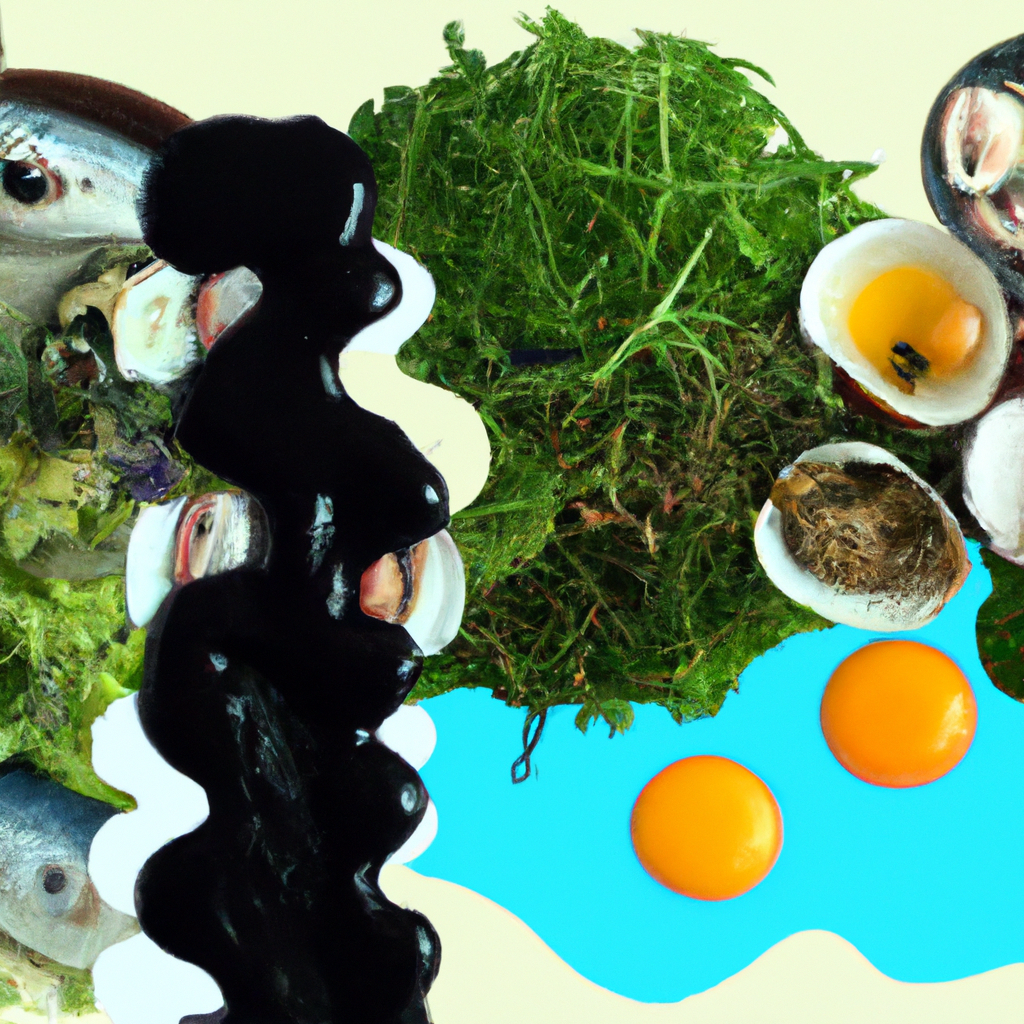-
Reading Roadmap
- The Relationship Between Persistent Organic Pollutants, Mediterranean Diet, and the Risk of Gestational Diabetes Mellitus
- Key Takeaways
- Introduction: Unraveling the Complex Relationship
- The Role of Persistent Organic Pollutants
- The Protective Effects of the Mediterranean Diet
- Interplay Between POPs, Mediterranean Diet, and GDM
- FAQ Section
- What are Persistent Organic Pollutants (POPs)?
- How do POPs increase the risk of Gestational Diabetes Mellitus (GDM)?
- What is the Mediterranean diet?
- How does the Mediterranean diet reduce the risk of GDM?
- What other factors contribute to the risk of GDM?
- Conclusion: Towards a Healthier Future
- Key Takeaways Revisited
The Relationship Between Persistent Organic Pollutants, Mediterranean Diet, and the Risk of Gestational Diabetes Mellitus

[youtubomatic_search]
Key Takeaways
- Persistent Organic Pollutants (POPs) are linked to an increased risk of Gestational Diabetes Mellitus (GDM).
- The Mediterranean diet, rich in antioxidants, may help mitigate the effects of POPs.
- Adherence to a Mediterranean diet during pregnancy can reduce the risk of GDM.
- Further research is needed to fully understand the complex relationship between POPs, the Mediterranean diet, and GDM.
- Preventive measures, including dietary changes and reducing exposure to POPs, can help manage the risk of GDM.
Introduction: Unraveling the Complex Relationship
The incidence of Gestational Diabetes Mellitus (GDM), a condition characterized by high blood sugar levels during pregnancy, has been on the rise globally. This increase has been linked to various factors, including exposure to Persistent Organic Pollutants (POPs). These are toxic chemicals that persist in the environment and accumulate in the body, potentially disrupting hormonal balance and insulin function. On the other hand, the Mediterranean diet, known for its high antioxidant and anti-inflammatory properties, has been suggested to reduce the risk of GDM. This article explores the intricate relationship between POPs, the Mediterranean diet, and the risk of GDM.
The Role of Persistent Organic Pollutants
POPs are a group of pollutants that are resistant to environmental degradation. They can be found in various sources, including pesticides, industrial chemicals, and even certain types of food. Studies have shown that exposure to POPs can disrupt endocrine function and increase insulin resistance, leading to a higher risk of developing GDM. For instance, a study published in the journal Environmental Health Perspectives found that women with higher levels of POPs in their blood were more likely to develop GDM.
The Protective Effects of the Mediterranean Diet
The Mediterranean diet, characterized by high consumption of fruits, vegetables, whole grains, and healthy fats, has been associated with numerous health benefits. Its high content of antioxidants and anti-inflammatory compounds can help counteract the harmful effects of POPs. A study published in the British Journal of Nutrition found that adherence to a Mediterranean diet during pregnancy was associated with a lower risk of developing GDM. The diet’s beneficial effects are attributed to its ability to improve insulin sensitivity and reduce inflammation, which are key factors in the development of GDM.
Interplay Between POPs, Mediterranean Diet, and GDM
The relationship between POPs, the Mediterranean diet, and GDM is complex and multifaceted. While POPs increase the risk of GDM, the Mediterranean diet appears to offer a protective effect. However, the extent to which the diet can counteract the effects of POPs is still unclear and requires further research. It is also important to note that other factors, such as genetics and lifestyle, play a significant role in the development of GDM.
FAQ Section
What are Persistent Organic Pollutants (POPs)?
POPs are toxic chemicals that are resistant to environmental degradation and can accumulate in the body over time. They are found in various sources, including pesticides, industrial chemicals, and certain types of food.
How do POPs increase the risk of Gestational Diabetes Mellitus (GDM)?
Exposure to POPs can disrupt endocrine function and increase insulin resistance, leading to a higher risk of developing GDM.
What is the Mediterranean diet?
The Mediterranean diet is characterized by high consumption of fruits, vegetables, whole grains, and healthy fats. It is known for its high antioxidant and anti-inflammatory properties.
How does the Mediterranean diet reduce the risk of GDM?
The Mediterranean diet can improve insulin sensitivity and reduce inflammation, which are key factors in the development of GDM. Its high content of antioxidants and anti-inflammatory compounds can also help counteract the harmful effects of POPs.
What other factors contribute to the risk of GDM?
Other factors that contribute to the risk of GDM include genetics, age, obesity, and lifestyle factors such as physical activity and diet.
Conclusion: Towards a Healthier Future
The relationship between Persistent Organic Pollutants, the Mediterranean diet, and the risk of Gestational Diabetes Mellitus is complex and multifaceted. While exposure to POPs increases the risk of GDM, adherence to a Mediterranean diet can offer protective effects. However, it is important to remember that other factors, such as genetics and lifestyle, also play a significant role. As we continue to unravel this complex relationship, it becomes clear that preventive measures, including dietary changes and reducing exposure to POPs, can help manage the risk of GDM. Further research is needed to fully understand these interactions and develop effective strategies for prevention and treatment.
[youtubomatic_search]
Key Takeaways Revisited
- Exposure to Persistent Organic Pollutants (POPs) can increase the risk of Gestational Diabetes Mellitus (GDM).
- The Mediterranean diet, rich in antioxidants and anti-inflammatory compounds, can help reduce the risk of GDM.
- The relationship between POPs, the Mediterranean diet, and GDM is complex and requires further research.
- Other factors, such as genetics and lifestyle, also contribute to the risk of GDM.
- Preventive measures, including dietary changes and reducing exposure to POPs, can help manage the risk of GDM.







